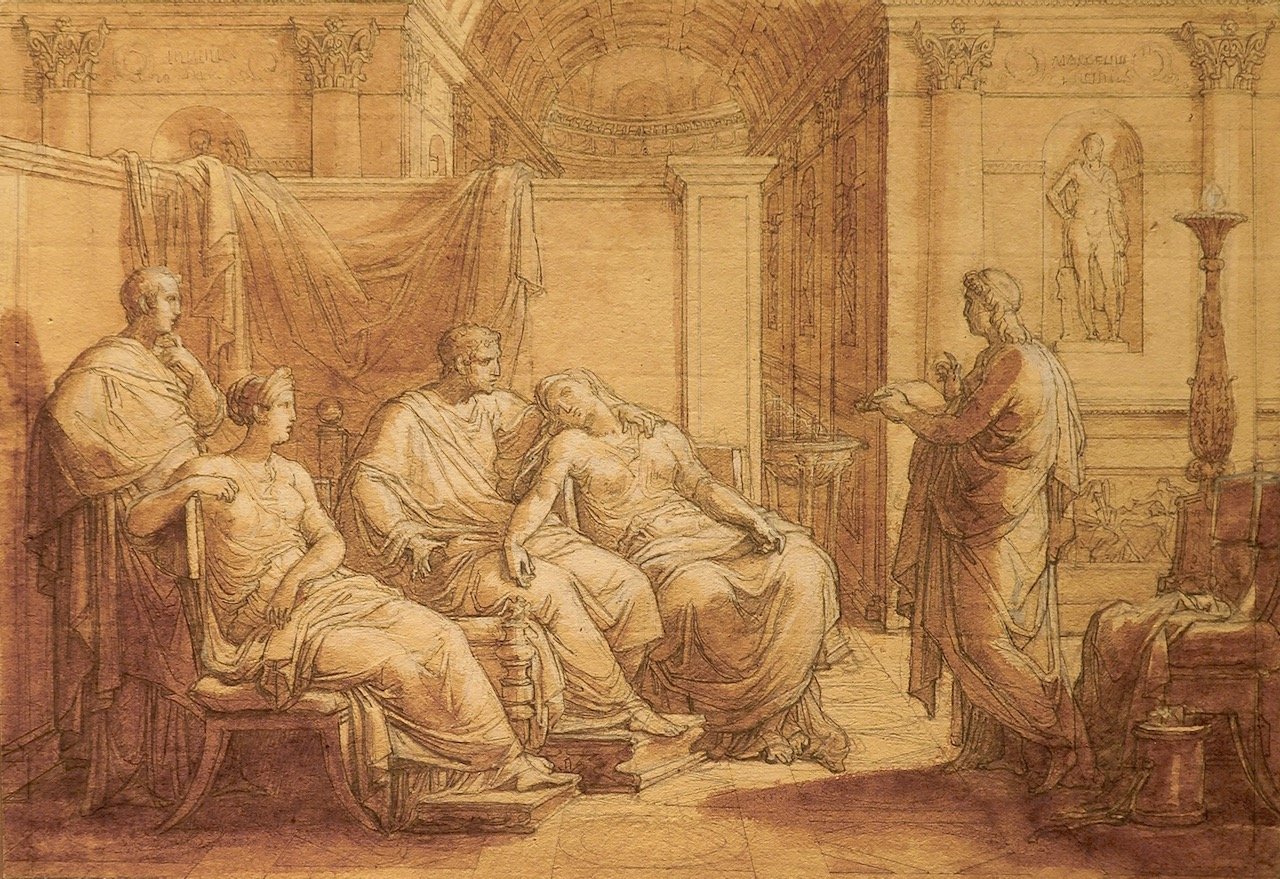VIRGIL READING THE AENIEID by VINCENZO CAMUCCINI (Rome, 1773-1844)
VINCENZO CAMUCCINI (Rome, 1773-1844). SOLD
The Poet Virgil Reading the Aeneid to Augustus, Livia and Octavia
Pen, brown ink, and wash, heightened with white, 8.25 x 12.33 in. (210 x 308 mm.)
OF POETRY
It's time we talked about it: what does poetry do?
If it’s true that poetry cannot make anything happen
then why was Ovid banished to the Black Sea
(around his absence grew the port of Constantza)?
Do you see what I just did? Under the fact that Ovid died
in what today is Romania, I smuggled the image that
a sea and a city's ripples meet in mourning the poet.
Untrue and moving. That's how poetry is.
If the world is a shadow of the real kingdom and poetry
is a shadow of the world, then poetry pushes us further
from truth, oars us in the wrong direction.
But what if there is nothing else than you and me and the dying
in between (the Black Sea, poetry, Ovid, this tree)? Shouldn't
the thought make us more intense to each other and, especially, more tender to oneself?
And what if there is no right direction except the one we blaze
with our hands?
No other truth?
Unaware of (or indifferent to) the debate, Virgil reads his poetry.
The two on the left are agape.
The woman on the right, her heart risking more, has
collapsed.
Next to her, the man reaches for the sword
he doesn't have.
His name is Gaius Julius Caesar Augustus.
If anyone can tell power, it is he.
—Stefan Balan
